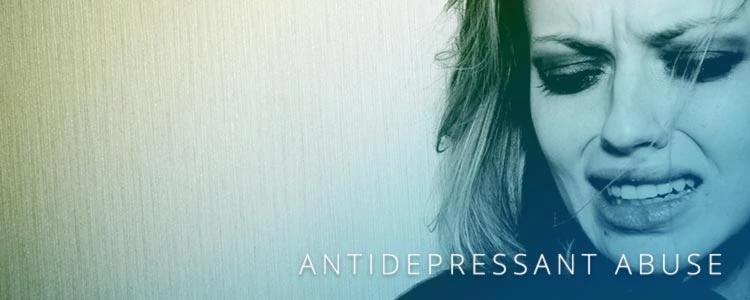Duloxetine
A combined serotonin and norepinephrine reuptake inhibitor (SNRI), duloxetine is an antidepressant drug that is used to treat depression and generalized anxiety disorder as well as offer relief for nerve pain caused by other medical conditions.

Common Brand Names: Cymbalta, Drizalma, Irenka, Yentreve
Preclinical studies have shown that duloxetine works, primarily, by inhibiting the reuptake of neuronal serotonin and norepinephrine and, secondarily, by inhibiting dopamine reuptake.The drug has been shown to be effective in the treatment of mood disorders in humans, but the pharmacodynamics of how it affects mood regulation in the brain needs to be investigated further.
Taking duloxetine also affects pain modulation. The drug increases the concentration of serotonin and norepinephrine on the dorsal horn of the spinal cord, and this activates receptors that inhibit the transmission of painful stimuli to the brain.
In the United States, duloxetine is a prescription medication.
Medical Uses of Duloxetine
Duloxetine is used in the treatment of major depressive disorder and generalized anxiety disorder as well as the management of diabetic and peripheral neuropathic pain, chronic musculoskeletal pain, and fibromyalgia. Off-label, the drug is used to treat chemotherapy-induced peripheral neuropathy and to manage stress urinary incontinence.
The drug is most commonly administered in capsule form, and it is absorbed well by the body via the oral route.The maximum recommended dose for duloxetine is 60 to 120 milligrams per day, depending on the condition and the doctor’s recommendation, and it can be taken without regard to meals. The drug has a half-life of about 12 hours, and it is mainly metabolized by the liver.
It takes between 1 to 4 weeks, sometimes longer, to feel the benefits of duloxetine. Typically, patients start taking the drug in low doses, then gradually increase the dose within the next few weeks.In the same vein, stopping the use of the drug should be done gradually and with the doctor’s advice.
Abuse and Misuse of Duloxetine
In general, duloxetine has been found to be a safe and well-tolerated medication, and its use has been related to mild-to-moderate adverse effects. However, the medication also comes with plenty of warnings, including severe drug interactions and the worsening of clinical symptoms, and thus, it should only be taken exactly as prescribed. Misusing the drug can happen when duloxetine is taken in the following ways:
- Below or above the prescribed dose
- Less or more often than the doctor’s recommendation
- For longer than prescribed
- With other drugs that can cause negative or harmful interactions
- With excessive alcohol or during periods of chronic alcohol consumption
It should also be noted that duloxetine can cause dizziness, lightheadedness, and fainting. It’s important for patients to find out exactly how the drug affects them so that they can determine if ingesting it prior to activities that require their judgment, thinking, or coordination might cause harm.
At the same time, abruptly stopping the use of the drug can lead to adverse withdrawal symptoms. These include anxiety, diarrhea, difficulty falling asleep or staying asleep, dizziness, headache, irritability, nausea, nightmares, pain or numbness or tingling in the hands or feet, sweating, tiredness, and vomiting. Stopping the use of the drug should be done gradually and with the guidance of a physician.
Duloxetine Drug Interactions
Duloxetine has been recorded to have negative interactions with the following types of medications or substances:
- Monoamine oxidase inhibitors: Monoamine oxidase inhibitors (MAOIs) are a class of medication that is used to treat depression, and they work by blocking the actions of monoamine oxidase enzymes.8 Using MAOIs concomitantly with serotonergic drugs or drugs that modify the effect of serotonin in the body increases one’s risk for serious and at times fatal serotonin syndrome
- Excessive or chronic alcohol consumption: Taking alcohol concomitantly with duloxetine can increase one’s risk of liver toxicity.
In addition, caution should be exercised when the drug is used with other medications for depression, blood thinners, medications that can cause sleepiness, and some herbal remedies and supplements (e.g. St. John’s Wort).
Duloxetine’s Adverse Effects
Taking duloxetine can have adverse effects that include:
- Changes in sexual desire or ability
- Constipation, diarrhea, heartburn, or stomach pain
- Decreased appetite
- Difficulty urinating or increased urination
- Dizziness, nausea, or vomiting
- Drowsiness
- Dry mouth
- Headache
- Muscle pain or cramps
- Sweating or night sweats
- Tiredness or weakness
- Uncontrollable shaking of a part of the body
Patients should consult their physicians if these symptoms are severe or if they don’t go away. Additionally, they should watch out for some of the more serious effects of duloxetine. Patients should seek medical attention immediately if they experience the following:
- Blisters or peeling skin
- Confusion
- Dark-colored urine
- Difficulty breathing or swallowing
- Extreme tiredness or weakness
- Fast or irregular heartbeat
- Fever or flu-like symptoms
- Hives, itching, or rashes
- Hoarseness
- Loss of appetite
- Pain in the upper right part of the stomach
- Swelling of the abdomen
- Swelling of the face, throat, tongue, lips, eyes, hands, feet, ankles, or lower legs
- Severe muscle stiffness
- Unusual bruising or bleeding
- Yellowing of the skin or eyes
Taking duloxetine can also lead to the worsening of depression and the onset of suicidal ideation and behavioral changes. It’s imperative for caregivers to monitor patients who are using antidepressants and to be on the lookout for the emergence of the following symptoms:
- Agitation
- Irritability
- Unusual changes in behavior
- Suicidal ideation and behavior
Signs of Duloxetine Overdose
Overdosing on duloxetine, either taken by itself or mixed with other drugs, can have fatal outcomes. Among the signs and symptoms of duloxetine overdose are:
- Agitation
- Diarrhea
- Dizziness or lightheadedness
- Fever
- Hallucinating or seeing things or hearing voices that do not exist
- Loss of coordination
- Nausea or vomiting
- Unusually low or high blood pressure
- Rapid heartbeat
- Fainting, loss of consciousness, sleepiness, or unresponsiveness
- Seizures
- Coma
Duloxetine: Dependence, Withdrawal, and Addiction
SNRIs are generally not considered addictive by medical experts, though duloxetine has been associated with withdrawal symptoms upon the reduction or cessation of its use.The emergence of withdrawal symptoms is a sign that a person has developed physical dependence on a drug. This can happen if a person is taking duloxetine for long periods of time, even if they are taking the drug exactly as prescribed by their physician. Among the withdrawal symptoms associated with duloxetine are:
- Anxiety
- Dizziness
- Headache
- Insomnia
- Irritability
- Nausea
Developing dependence on a drug does not mean that a person also has a substance use disorder (SUD), which is an official diagnosis described under the Diagnostic and Statistical Manual of Mental Disorders, Fifth Edition.10 SUD or addiction is a complex condition that is marked by compulsive drug use despite its negative consequences, and people who have this condition may find that their capability to function in their day to day lives is hampered by their continued use of the drug.
However, people who have developed dependence on a drug and are manifesting withdrawal symptoms are advised to undergo medical detoxification. This program is designed to remove the drug from one’s system, all while ensuring the person’s safety and comfort. Typically overseen by a medical professional, the detoxification process may involve the slow tapering off of the dosage of the drug and the use of pharmacological interventions and nutritional supplements to preserve the patient’s physical health while they’re going through this challenging period.
Free Yourself from Duloxetine Abuse and Misuse
If you’re abusing duloxetine, whether misusing it all by itself or by combining it with drugs that can cause a negative impact on your health, then it’s time to reevaluate your relationship with the drug. Undergoing rehab may be necessary, and understanding the following options available at your disposal can help you regain control of your life:
- Inpatient treatment program: This treatment program is carried out in a dedicated facility where the patient can be monitored by medical professionals. An inpatient treatment program is often recommended for patients who have a history of relapsing or non-compliance to treatment protocols. Inpatient treatment may be especially helpful for individuals who are experiencing co-occurring substance use disorders and medical health issues, as this setup incorporates a range of pharmaceutical and behavioral interventions to ensure their healing.
- Outpatient treatment program: An outpatient treatment program enables patients to continue attending school, going to work, or carrying out most of their everyday routines. From time to time, they will be required to attend treatment or therapy sessions in a dedicated facility where they can expect to receive the necessary medical interventions.
Take the first step to freedom today by finding a treatment program that suits your particular needs. Better Addiction Care can help you find the right rehabilitation center in your area, and our recovery support advisers can assist you in verifying your insurance to ensure that it can cover the treatment you require. We can also help you determine the best alternative financing options available to you if you don’t currently have insurance. Call us today at (800) 429-7690.
A Short History of Duloxetine
Duloxetine was patented in 1990 and approved by the US Food and Drug Administration (FDA) for depression and diabetic neuropathy in 2004. In 2007, the US FDA approved duloxetine for the treatment of generalized anxiety disorder (GAD).







